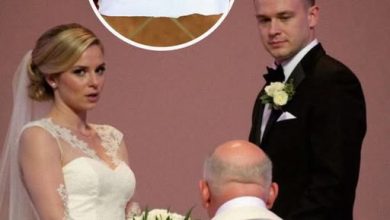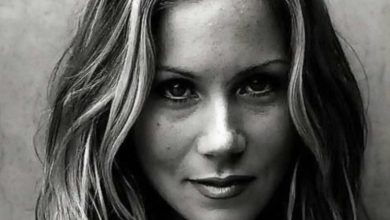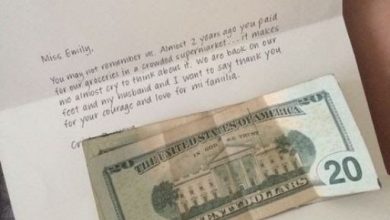The Postcards My Grandma Gave Me Were Hiding A Secret She Took To Her Grave
The relationship I had with my grandmother was a mix of frustration and quiet affection. Every year on my birthday, she had one strange tradition: she would only hand me a single, old postcard. At the time, I was a teenager, and receiving such a simple, cheap gift felt like a letdown. I would often frown and roll my eyes at the gesture, not understanding the true value of what she was giving me.
When she passed away, I was 17. Life moved on quickly. I grew up, went to college, got married, and then divorced. Twenty years later, when I was 37, I returned to my childhood home. While going through some of the old things, I stumbled upon a small jar. Inside were seventeen familiar pieces of paper: her 17 postcards.
I started looking at them, one by one. I turned one over, and a strange feeling washed over me. I froze. In that moment, a massive realization hit me: those silly postcards were actually clues.
The Message in the Musings
Each card had a little handwritten note from her, a small message that I had always thought was just her “rambling grandma-isms.” They were cryptic, poetic sayings, like: “Not every door is locked just because it creaks,” and “You’ll never find truth where everyone agrees.” I used to think she was just being weirdly philosophical. But now, seeing them all together, I understood I was looking at something much deeper.
The real secret was hidden on the back of each card. She had used a different color of ink to underline certain letters—just one letter here, maybe two there—within her handwritten message. The shaking started in my hands as I spread all 17 postcards out on the kitchen table. It was a painstaking process, but I started carefully jotting down the underlined letters in the order they appeared on the cards.
At first, the sequence of letters made no sense. It was just a jumble. Then, slowly and miraculously, a clear and important phrase began to emerge:
“LOOK IN THE CEDAR HOPE CHEST. BOTTOM.”
Finding the False Bottom
The cedar hope chest had been in her bedroom for my entire life. I had always imagined it was just full of old moth-eaten blankets and linens—the kind of things you put away and forget about. When she passed, I was a young, busy, college-bound “know-it-all,” and the chest hadn’t crossed my mind.
But now, here I was—a 37-year-old divorced single mom—standing in a dusty guest room, my heart racing as if I had suddenly found a treasure map. I knelt down by the chest, lifted the heavy lid, and was instantly greeted by the comforting scent of old wood and lavender sachets. I carefully pulled out the items inside: some hand-crocheted doilies, two embroidered pillowcases, and an old, faded quilt. Nothing seemed out of the ordinary.
But then, my eyes caught it: a tiny seam where the wood was slightly discolored. There was a false bottom.
It took me a few attempts to figure out how to gently pry it up without damaging the wood. Underneath the false layer, I found a worn, faded red folder holding a thick stack of papers. On the very top of the stack, there was a simple yellow sticky note in her familiar, unmistakable handwriting:
“Read these when you’re ready to know who I really was.”
The Confession in the Folder
I sank down onto the floor, cross-legged, with the mysterious folder in my lap. The first item was a small, black-and-white photograph. It showed my grandmother, much younger, probably in her twenties, standing in front of what looked like a train station. But she wasn’t alone. Standing right next to her was a man I had never, ever seen before. His arm was around her shoulder.
And a huge shock: she was pregnant.
I stared at the image for a long time. My grandmother had always told me a clear story: she married young, had my father when she was 22, and was a widow by the age of 30. The man in this photo was clearly not my grandfather. He had a darker complexion, perhaps Indian or Middle Eastern, with penetrating eyes and a very confident way of standing.
I moved on to the next page. It was a letter, dated all the way back to 1962:
My dearest Zahra, If you are reading this, it means our daughter is safe. It means you found a way out. I’m sorry I couldn’t go with you. I hope she has your courage, your eyes. Tell her I loved her, even from afar. Always, A.
The word “Daughter?” echoed in my mind. My father was an only child. He didn’t have a sister.
But as I kept reading through the papers in the folder, an overwhelming, new truth began to form inside me. It felt like a slow and massive storm building up in my chest. I wasn’t reading about some distant cousin or a long-lost family member.
I was reading about me.
The woman I knew as Grandma Zahra hadn’t been my biological grandmother.
She had been my mother.
The postcards, the riddles, the mystery she had left behind—it wasn’t a strange, quirky game. It was her way of giving me the entire truth of my own origin story, handing it over piece by piece, only when she believed I was old enough to handle it.
A Story of Sacrifice and Courage
I stayed on that floor for several hours, reading every single letter in that folder. My mother—the woman I called Grandma—had fled from Iran during the early 1970s. The reason: she had fallen deeply in love with a man her strict family had forbidden her from marrying. He was a journalist who was being targeted by the regime. She managed to escape the country; he did not. She gave birth to her daughter—me—alone in a refugee shelter in Greece.
She was scared, alone, and had no way to support a baby. In a painful act of sacrifice, she arranged for a distant cousin in the United States to adopt me as a newborn. She then followed, found work as a house cleaner, and stayed close by, watching from the outside.
She waited until I was five years old, then applied to be our family’s “nanny.” My adoptive parents—who were not strangers, but the distant relatives she had spoken of—let her into our home immediately. I never knew the difference.
She never told me directly. Instead, she sent postcards. One every single year, with those cryptic lines that now felt like desperate, silent whispers trying to scream: I am your mother. I’ve always been your mother.
I cried for hours that night—the kind of intense, deep crying that leaves you completely empty. For the next week, I read the letters over and over, calling out of work. It felt too sacred, too unbelievable to share with anyone yet.
Then, a strange thing started to happen. I began to remember things from my childhood. Small, specific moments.
I remembered how she always knew exactly what kind of comfort I needed when I was sick. I remembered the unique lullaby she would hum, a tune I have never heard anywhere else in the world. And I remembered the one time she slapped a man’s hand away from me in the grocery store with a fierce rage that shocked everyone. I used to think she was simply overly strict or overprotective.
Now, I finally understood. She was holding onto me for dear life. She had lost so much and kept losing, quietly, every day. But she never let go of me.
Coming Home
The final, unexpected twist in her story was this: She never told my adoptive parents either. I found one last letter at the bottom of the folder addressed to them, dated a year before she died. She never sent it. It was her final confession, explaining the whole story, begging for their forgiveness, and expressing her hope that I would one day understand.
I had spent years being angry at her for being so strict, so distant sometimes. Now, I finally understood why she had to keep such a high emotional wall up. She was forced to hide the most painful, most beautiful truth of her life every single day.
I sat with this monumental secret for a long time. Then, I made a decision that would change my future.
I called my adoptive parents. I told them absolutely everything. There was a long silence on the line. My mom began to cry. My dad was quiet for so long I worried the call had disconnected. Then he finally said something that I will never forget:
“She loved you harder than we ever could. We always knew it. We just didn’t know why.”
The week after, I brought the letters over, and we read them all together. There were many tears, of course, but also shared laughter and stories I’d never heard. The complete picture of our unusual family finally came into focus.
The most poetic twist of all? In her will, Grandma Zahra had left me her house. It was a modest little bungalow in Oregon. I was a burnt-out corporate marketing executive living in Los Angeles, bitter and exhausted from my recent divorce. I never thought I’d want the house.
That little bungalow became my sanctuary. I left the city, moved up north, and started a small creative studio right from her old kitchen table. My daughter, Reya, who is now six, has a beautiful backyard, fresh air, and a kind neighbor who bakes us baklava every Friday.
And the very best part is that I have started a new tradition: I started writing postcards to Reya. They aren’t just silly, quick birthday notes. They are genuine messages, quiet thoughts, and important lessons I want her to know when she is old enough to truly understand.
If I’ve learned anything from this secret, it’s that love isn’t always loud and bold. Sometimes, it whispers for decades, patiently waiting for the right moment to be heard.
Not all secrets are betrayals meant to hurt. Some are truly acts of sacrifice, carefully wrapped in silence and shaped by a deep, unending love. And if you are lucky enough, someday, the truth always finds its way home. ❤️




